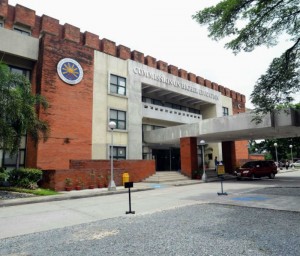MANILA, Philippines—To enable Filipinos to better understand and appreciate the use of biotechnology, different government agencies have set a series of activities for this year’s celebration of Biotechnology Week.
With the theme, “Edukasyon sa Bioteknolohiya: Pagyamanin para sa Kinabukasan Natin” (Fostering Education in Biotechnology for our Future), the Commission on Higher Education (CHEd) will host this year’s celebration which will run from Nov. 24 to 28.
Participating agencies include the departments of Science and Technology, Agriculture, Environment and Natural Resources, Education, Health, Trade and Industry, and Interior and Local Government.
Biotechnology is the use of living organisms or biological systems to develop, make or modify products with specific uses and is particularly applied in the areas of medicine, agriculture, industry and the environment.
The activities for Biotechnology Week will kick off Monday at the CHEd office in Diliman, Quezon City, where the latest applications of biotechnology in health, food security and the environment will be featured.
Under Presidential Proclamation No. 1414, the last week of November has been declared Biotechnology Week in keeping with the government’s policy “to promote safe and responsible use of modern biotechnology and its products as one of several means to achieve and sustain food security, equitable access to health services, sustainable and safe environment and industry development.”
The law, signed in November 2007, recognizes biotechnology’s use in sustaining farm productivity and enhancing crop quality and yield; developing vaccines, antibiotics and other medicine; protecting water quality; improving waste management techniques; reducing chemical pesticide; producing renewable energy, and cleaning up manufacturing processes.
“Biotechnology increases the pace of technology development for medical, agricultural, industrial and environmental application. Public awareness, education and understanding of biotechnology is essential for the responsible application and regulation of this new technology,” it further states. Jeannette I. Andrade
